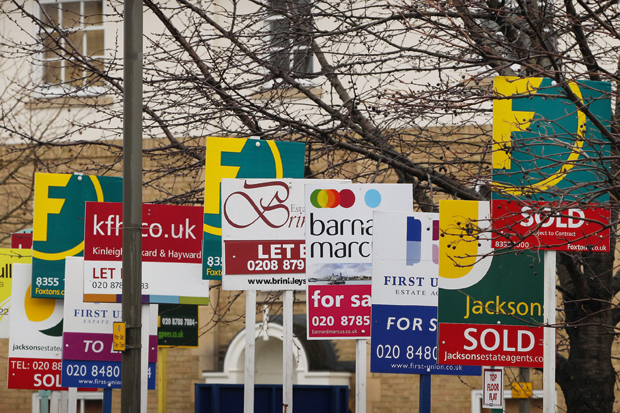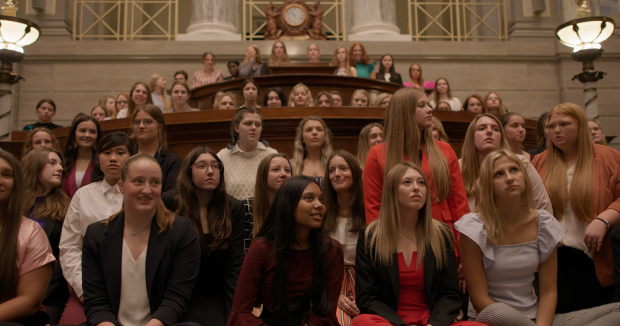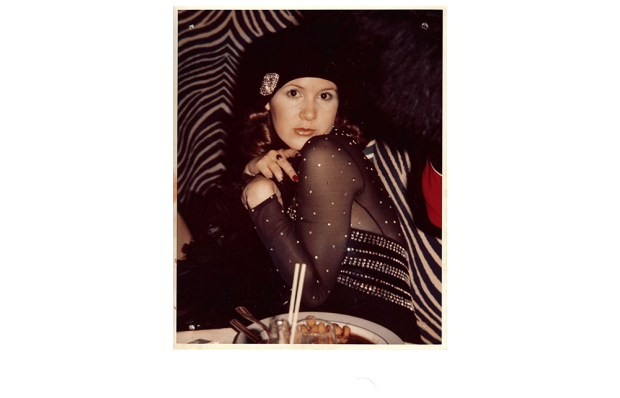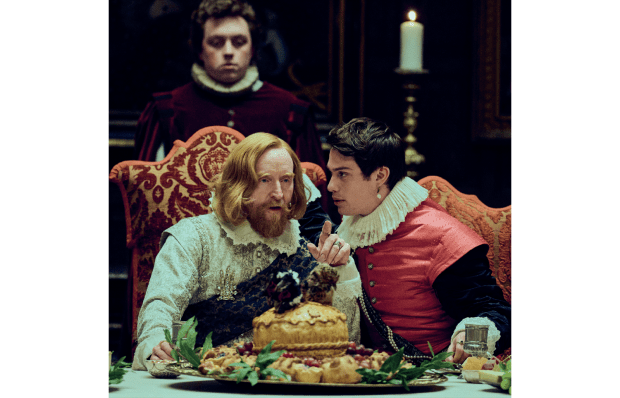Television executives must be longing to make a programme about estate agents that casts the agents in a good light. There would be a national outrage, and in these Twittering, Facebooking times nothing is more appealing to a producer than a bulging digital postbag. Under Offer: Estate Agents on the Job (BBC2, Wednesday) is, sad to say, not that series. The factual six-parter goes behind the scenes with agents around the country, only to show us that we were right about the bastards all along.
Everyone we met was a pastiche of an archetype. There was Lewis Rossiter, in Exeter, a young man whose drinking banter and easy way with aphorism suggested that the BBC had cultivated him from David Brent’s rib. Or Gary Hersham, the rubber-faced agent to millionaires, who boasted about vile mansions in Cannes while his tailor, flown in from Italy, grappled with his fluctuating waist. The amiable posho, Archie, who hopes to flog a barren island in Scotland. And then there is Dave, the Brummie veteran, who tries to ramp up competition between buyers while also chivvying along the vendor. No surprises, in short.
Instead of enlightenment we got flashes of humour — mostly supplied unwittingly by the agents, but a couple of moments suggested that the reporters might not be firing on all cylinders either.
‘Do you ever feel like a negotiator?’ a voice behind the camera asked one of the girls in Lewis’s office. ‘Yes, that’s my job title,’ she replied, with admirable equanimity.
One sympathises with agents to an extent: it’s not entirely their fault that houses are so expensive, or that their side of the job does not take into account the emotional importance a deal has for buyer and vendor. But there was something sadly predictable about the way these men went about their business, by turns incompetent and grubby. People’s impression of estate agents, explained Dave, were mostly informed by ‘their experience of estate agents’.
For all the bells and whistles of the internet, the core processes of estate agency have stayed remarkably similar: the vendor puts their house online or walks into an agency, the buyer searches and then compromises, there is wrangling over the price, and then a series of negotiations about details. Regardless of who the customers are, the system is a mixture of infuriating, terrifying and boring right up to the excitement of exchange and completion — when the agents leave, in other words.
From an ancient trade to a much newer one. On Easter Monday, BBC2’s Business Boomers: Amazon’s Retail Revolution reminded us what can happen when a man with drive and vision decides to put the customer first. It has been 20 years since Jeff Bezos, operating out of his garage in Seattle, Washington, flogged his first book over the newfangled internet. Amazon is now a $170-billion company with 97,000 employees and dictates terms to the rest of the publishing industry. As a French culture minister admitted, Amazon’s success even has governments wondering how to react.
These days the firm will sell you everything from dishwashers to yoghurt and, thanks to the Kindle, it controls the medium as well as the message when it comes to books. But, as the programme showed, at heart Amazon is ruthlessly simple: give people what they want, for less. For some, such as the man in John O’Groats on an online-ordered rowing machine, Amazon has truly improved the quality of life. Christopher North, the chief executive of Amazon UK, put it succinctly: ‘We are saving people time and money that they can spend doing other things.’
Of course, Amazon is also saving itself a great deal of money by paying almost no tax. Loathsome as estate agents might be to work with, they are pretty good at getting stamp duty. Amazon is at the opposite end of capitalism from estate agency: cut-throat, efficient and insatiably ambitious, where the client is always right. ‘Start with the customer and work backwards’ was Bezos’s mantra. What is good for the customer has so far been great for Amazon, but is it good for the country?
Production-wise, neither programme was at the sharp end. Under Offer was jaunty but slow, and it was difficult to fathom how anyone thought it needed six hours; Business Boomers suffered from that worthy flatness, unique to BBC2, of programmes assured of a long afterlife replayed in school classrooms or in the middle of the night for Open University viewers.
This is a golden age for smart, sharp television, for which Amazon, through subsidiaries such as LoveFilm, is becoming directly responsible. It is hard to imagine that Jeff Bezos would countenance programmes as old-fashioned as Under Offer or Business Boomers.
Got something to add? Join the discussion and comment below.
Get 10 issues for just $10
Subscribe to The Spectator Australia today for the next 10 magazine issues, plus full online access, for just $10.
You might disagree with half of it, but you’ll enjoy reading all of it. Try your first month for free, then just $2 a week for the remainder of your first year.














Comments
Don't miss out
Join the conversation with other Spectator Australia readers. Subscribe to leave a comment.
SUBSCRIBEAlready a subscriber? Log in